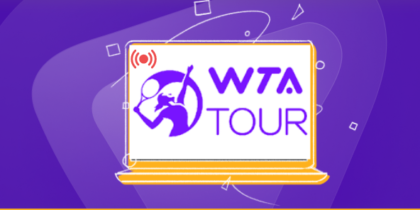A frozen bank account can land you in trouble. In fact, it can be really frustrating when you try to access your online bank account from a foreign country. A frozen bank account may be a result of suspicious bank account activity or unpaid debts.
In this blog, I will list down the reasons why would a bank account be frozen and how can you prevent your bank account from getting frozen.
What is a frozen bank account and why would my bank account be locked?
When you are unable to access your online bank account and make transactions, there are high possibilities that your bank account is locked. Or, it may be restricted from withdrawing money, paying cheques and conducting online transactions.

Who can freeze my bank account and how to unfreeze a bank account?
Only banks can freeze bank accounts due to a number of reasons. If you find yourself in such situations, immediately contact your bank to unfreeze your account.
Is it common to get your Bank Account Frozen due to Suspicious Activity?
Finding yourself locked out of your bank account is more common than you think. It usually happens when you travel abroad, or when you are making a booking at a foreign location.
Why would a bank freeze an account?
Now, this is important.
Let us analyze why, and when do banks get your bank account locked.
Whenever you start surfing on the internet, any web page that you interact with can see your IP address. In case you’re not aware, your IP address happens to contain important information about you. This includes your current location on the map.
This means that if you are somewhere in Detroit, any website that you visit would receive this information next to your IP address.
Like any other website, banks too can see your present location when you try to access your bank account. And unless you’ve been living under a rock, banks put great focus on the security of your bank account. This is why they’d find it very suspicious if your account is accessed from a foreign location.
The same happens when you try to use your ATM, or credit card from a foreign location. Your bank would immediately flag this as suspicious activity and would most probably block you from accessing your account.
How Do You Know if Your Bank Account is Frozen?
It’s easy. If you’re unable to access your account despite several attempts, there are high chances that your bank has got your bank account frozen. You’ll probably see a message on your screen that says: “Bank Account was locked due to Suspicious Activity”
If you have a frozen bank account, you won’t be able to use your ATM and Credit/Debit cards as well. Each time, you’ll see an error message on the screen, and any transaction that you make will fail to process.

How long Can a Bank Account be Frozen?
That depends on how quickly you can take action. Bank Accounts usually stay frozen until the misunderstanding between you and your bank is cleared.
The best thing to do is to contact your bank immediately and try to diffuse any misunderstandings. You will probably be asked some questions, and once your bank is satisfied, it would unfreeze your account and you will be able to access and use it.
Here’s What You Can Do to Avoid a Frozen Bank Account?
The best way to avoid a frozen bank account is to inform your bank of your intention to travel. You can call your bank and inform them of your intentions. Or you can set up an alert online via your banking app so that your bank knows that you’d be traveling to a foreign location soon.
But in case you’re too lazy to call your bank each time you travel abroad, what you can do instead is to get a VPN. A good VPN service can easily help you avoid a frozen bank account. But how does it do that? Let’s find out.

How a VPN helps?
VPN is a tool that helps you change your IP location on the web. As mentioned above, your IP address is critical for banks to analyze where you’re located. With a VPN, you can easily control your IP location and avoid any misunderstandings that can happen between you and your bank.
For instance, if you’re traveling to a foreign location, and you forgot to inform your bank of your intentions to travel, then it is best that you connect to your home location via a VPN and then make any transactions. This way, your bank won’t spot anything suspicious in your transaction and would allow it to process.
This method is not just helpful in avoid a frozen bank account, it would also help you make PayPal transactions in foreign countries without seeing your account getting blocked.
PayPal gets especially suspicious when you login to your account from a foreign location. If your account gets blocked, it would take forever to unblock it. Using a VPN is a safe and convenient bet in this case.
And if you are especially concerned about the security of your account, but you don’t want to have a frozen bank account, then you can get a dedicated IP address instead.
As its name suggests, a dedicated IP address is a unique IP that would be under your own use only. Normal IP addresses have the habit of changing, but a dedicated IP address would stay the same and only you’d be allowed to use it.
This makes it a healthy and safe way for you to keep accessing your banking services online without risking the security of your account. And you would also be able to avoid having a frozen bank account to deal with!

In summary, you can save yourself from getting into this situation by getting PureVPN today. Why PureVPN? Because the service offers connectivity to one of the largest server networks and 300,000+ IP addresses, giving you the freedom to connect to any location you want. Moreover, you can get your own dedicated IP address through PureVPN and avoid any online banking security risks.
Frequently Asked Questions
Can I still access my money in a frozen account?
It depends on the reason for the freeze and the regulations of your bank or financial institution. In most cases, you will not be able to access the funds in a frozen account until the freeze is lifted.
What is a frozen bank account?
A frozen bank account is a type of financial hold placed on an account that restricts any access, withdrawals or transfers. This can be done by a bank or other financial institution in response to a court order, a government request or due to suspicious or suspicious activity on the account.
How can I get my frozen bank account unfrozen?
The steps to unfreeze a bank account vary depending on the reason for the freeze. You may need to provide documentation, resolve any outstanding debts or work with a government agency to lift the freeze. It’s best to contact your bank directly and discuss the specific steps you need to take to get your account unfrozen.




